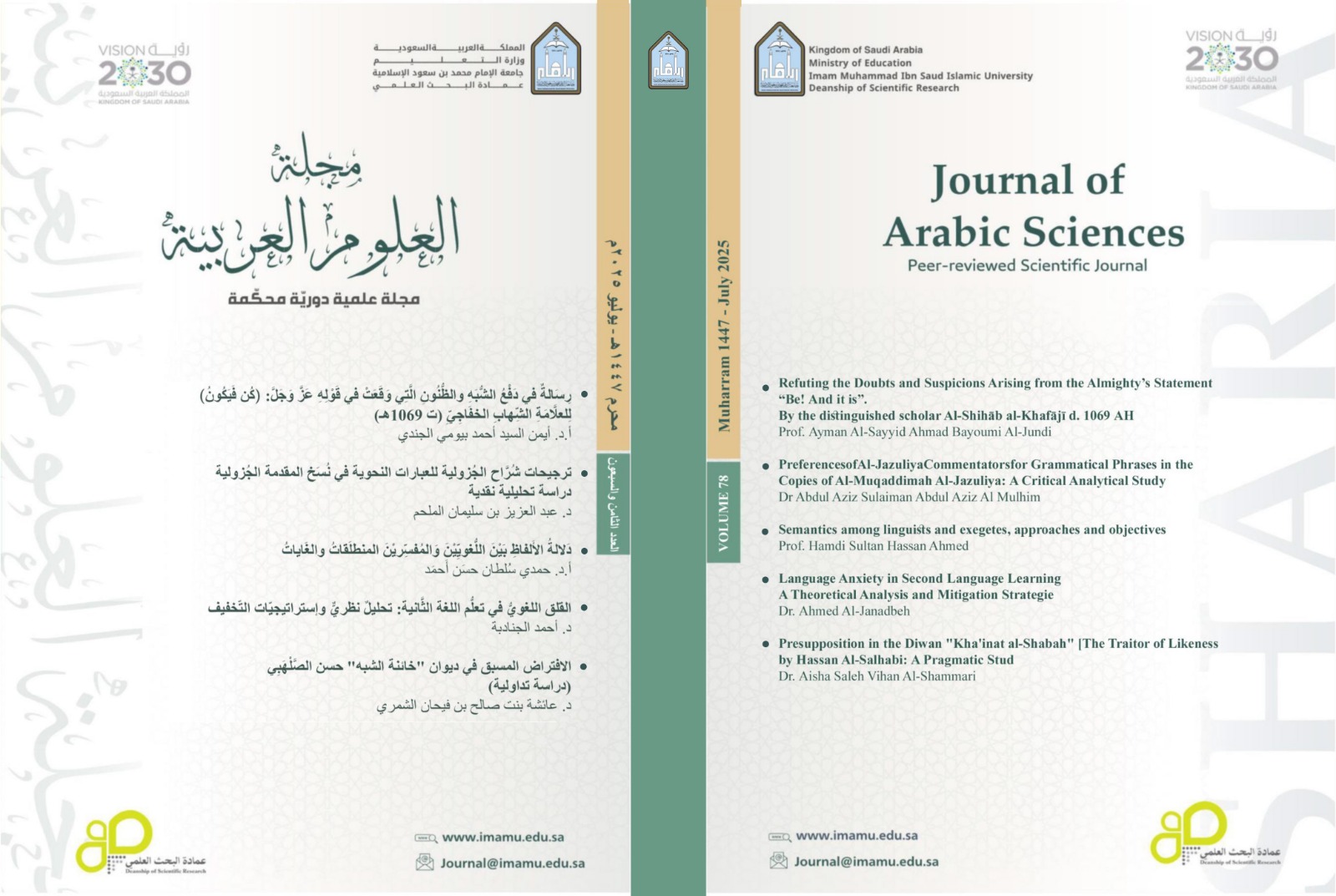Presupposition in the Diwan "Kha'inat al-Shabah" [The Traitor of Likeness] by Hassan Al-Sulhibi
Keywords:
Pragmatics, presupposition, Hassan Al-Salhabi, linguistics, discourseAbstract
This study aimed to explore the presuppositions and identify their types in the diwan (poetry collection) Kha'inat al-Shabah [The Traitor of Likeness] by the Saudi poet Hassan Al-Sulhibi, analyzing them pragmatically. The pragmatic approach was used as the primary tool for the study. Given the nature of the topic, the study was divided into five sections, outlined as follows: the introduction, which addressed the study's objectives, research problem, methodology, and structure, as well as previous studies; the preface, which discussed the concept of presupposition, its definition in pragmatics, and its classification; the first section: existential presupposition; the second section: factual presupposition; the third section: lexical presupposition; the fourth section: structural presupposition; the fifth section: non-factual presupposition. The conclusion then presented the study's findings, followed by a list of sources and references. Among the study's findings are the following: existential presupposition was the most prevalent type of presupposition in the poet's texts, due to the dominant linguistic nature of its tools, such as addition and definition, as hardly any verse or poetic segment is devoid of them. Place formed an important axis in the poet's diwan, and thus most of the structural presuppositions embedded in interrogative tools lie in the interrogative tool "where," which is used to inquire about place.




